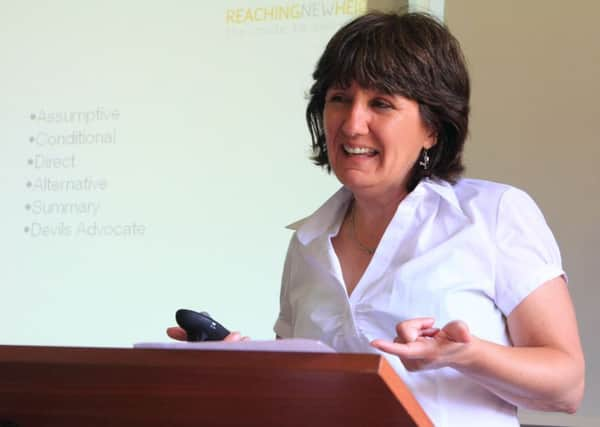The ‘mini me’ concept of social media


I love walking and this year’s pre-Christmas walk was in the Lakes. One of the best things for me about walking is getting away from the computer, phone etc, but I now find myself in a situation where my new smart phone tells me everyday I need to be more active. As a result I’ve actually had a conversation with myself that goes like “I’ll have to take my phone out with me when I walk the dog so it can see that I am active!” Talk about being a slave to your phone!
Two weeks ago I set myself a Twitter challenge to follow everyone that follows me and initiate a conversation with them - well it is social media. This has actually been harder than I thought, but it’s also been an interesting experiment, which I’ll write up as a blog after Christmas.
Advertisement
Hide AdAdvertisement
Hide AdWhat’s been particularly good for me is that I’ve chatted with people I wouldn’t have if I’d stuck to my normal style of choosing who I follow. There’s an issue that was the topic of The Human Zoo recently, which is we have a tendency to think most people think like us because we surround ourselves with people that do think like us. This is referred to as the mini-me or tribal concept. We particularly do this online as we don’t want our news feeds full of stuff we find offensive, or even things that challenge our reality. But the impact of that is we get into a cycle of reinforcing our own views and beliefs. And then, because social media platforms are gathering our data, we’re offered more stories and more people that further reinforce that.
The problem is, that means everyone else may get lumped together as ‘not like us’, which can also lead to ‘they are wrong’, or even bad. The joy of social media is that it’s really opened up the world and enables us to see other people’s lives and stories. When we take the time to do that we can’t help but notice that mostly we have more similarities than differences.